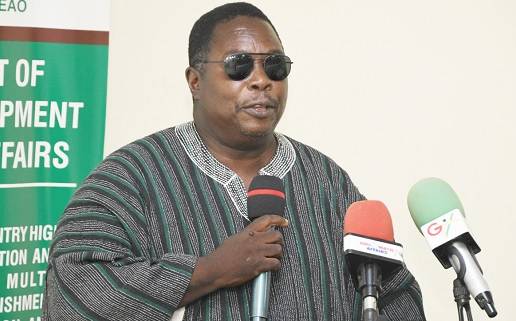Participants in a three-day workshop on social protection and human security in ECOWAS nations have made a commitment to collaborate in order to create binding legislation that assures adherence to human rights laws.
They pledged to make sure that International Humanitarian Law (IHL) and International Human Rights Law (IHRL) were incorporated into the curricula of all educational institutions, from primary to tertiary.
The participants also agreed to work to increase funding for organizations that detect potential threats to human security, such as gender-based violence, human trafficking, and child protection.
The stakeholders demanded that in order to carry out their responsibilities, traditional authorities and strategic communication be used effectively.
These were in a statement that was read at the ECOWAS capacity-building workshop on protection and human security integrated coordination mechanism (ECO-PHSICM)'s closing ceremony on Thursday in Accra.
The stakeholders had been discussing concerns relating to human security and how, at the level of national policymaking, they might assure the safety of those living in an unstable environment.
encouraging sustainable development
In a speech that was read on her behalf, the Minister of Foreign Affairs and Regional Integration, Shirley Ayorkor Botchwey, expressed confidence that the knowledge gained and the experiences shared would significantly strengthen their group's efforts to safeguard human security and advance sustainable development.
The stakeholders had at least a basic understanding of the roles and responsibilities of the National Centre for Coordination of Early Warning and Response Mechanisms (NCCRM), the Office of the Resident Representative, and the ECOWAS National Office in Ghana towards integrated human development, she said, even though there were still unresolved issues that required more systematic research.
She advised the stakeholders to make use of the necessary research's findings in order to improve coordination and efficiency throughout the nation's human security response ecosystem.
She expressed the expectation that following the suggestions and establishing the ECO-PHSICM Office in Ghana will significantly help Ghana solve its problems with human security and protection.
Dr. Peter Obeng Asamoa, executive director of the Ghana Federation of the Disabled, urged ECOWAS to revisit the African Disability Protocol, a framework designed to advance, safeguard, and guarantee the equal rights of persons with disabilities (PWDs).
He urged the attendees and ECOWAS as a whole to advocate for the ratification of the African Disability Protocol in at least 15 nations, which is necessary for it to become effective.
Only six nations have ratified it thus far, and only Mali, a nation in West Africa, has done so.
According to Dr. Asamoa, the protocol would improve the issue of safety and human security for everyone, not just those with disabilities.


